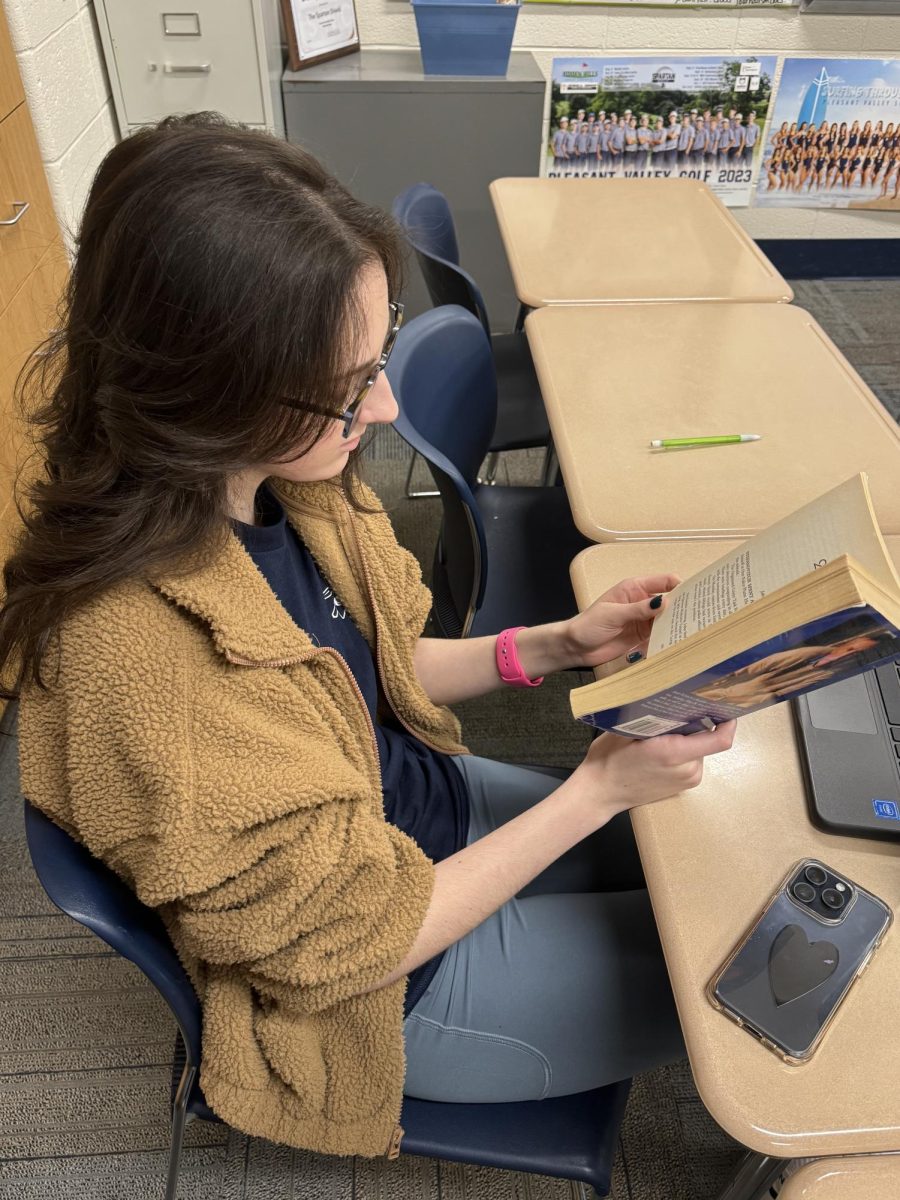Over 90% of US adults have earned a high school diploma, meaning that the ability to read and write is a widely accessible skill.
Despite this, the activity of reading for pleasure is becoming less common, with nearly half of Americans ages 18-24 reading no books for fun, a statistic that has, for some age groups, doubled over the past 20 years.
Many people are aware of the benefits of reading, including both the academic and extracurricular. PV Librarian Carissa McDonald is more familiar with these effects than anyone
“Reading just 15-30 minutes a day can have all kinds of benefits, from reduced stress to increased academic success and long-term future success. Reading increases your intelligence, but it also increases your emotional and social intelligence, as well as your overall well being,” she said.
The Organization for Economic Cooperation and Development found that 50% of adults cannot read a book written above a 7th grade level. The implications of this extend far beyond the classroom.
English teacher Dr. Lynne Lundberg argues that reading increases the ability “to think, to reason, to make judgments and to be critical thinkers.” All of these skills are necessary for productive participation in society, and without them communication and cooperation can suffer overall.
Lundberg has noticed that, in adults, lack of consistent reading results in missed allusions. “Here’s a big idea that applies to this argument this debate, this concept that we’re thinking about,” Lundberg explained, “But if you don’t get the allusion, you don’t make the connection, which means your thinking isn’t very rich, it isn’t very nuanced and we end up with a very black and white kind of thought process for decision making.”
The possible causes for this decline in literacy are numerous, but McDonald believes the issue stems from “our ‘click bait’ or ‘soundbite’ culture.” Becoming accustomed to bit-size information input makes it difficult to shift back to reading, which requires singular focus over a long period of time.
The Reading Agency reports that 66% of people said that if they could stop scrolling they would spend more time reading, and over 50% of adults admit that they lack the self control to stay off their phones long enough to read.
Read Across America week is being celebrated March 2-6th, and is an initiative designed to encourage children to read and to educate them on the importance of reading. This event and others like it aim to increase childhood reading rates.
McDonald believes that encouraging children to develop reading habits can translate to reading more as an adult. “We try to encourage this habit in students by offering SSR, hoping that we can instill this lifelong habit. Students and adults who recognize the importance of this habit—even if reading isn’t their favorite thing— reap these benefits,” McDonald said.
Lundberg believes that the sharing of books between friends and within communities can also impact the literacy rate. “We should be encouraging reading, sharing the joy of stories, making book recommendations to our friends, perhaps reading stories to small children- there’s lots of little things that we can do that foster a climate of literacy.”









